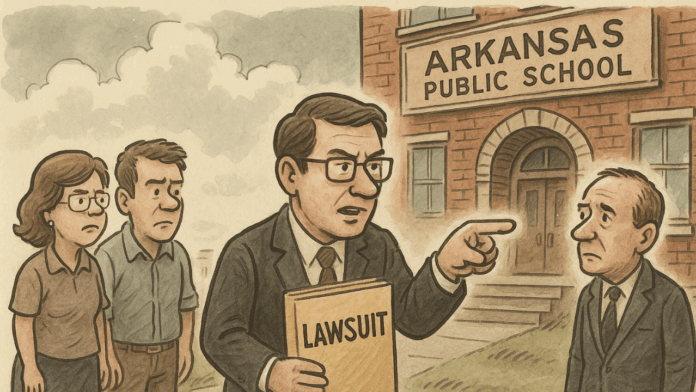Seven Families Challenge Arkansas Law Requiring Ten Commandments Displays in Schools
Seven Arkansas families, represented by the Freedom From Religion Foundation (FFRF), the American Civil Liberties Union (ACLU), and Americans United for Separation of Church and State, have filed a federal lawsuit to block a new state law mandating the display of the Ten Commandments in all public school classrooms and libraries.
Details of the Controversial Law
The law, recently enacted in Arkansas, requires every public school classroom and library to display a specific Protestant version of the Ten Commandments. The legislation outlines strict requirements for the size and placement of the displays, mandating that the text be presented in a prominent and visible location. The law has drawn criticism for its religious specificity and for compelling public schools to endorse a particular religious doctrine.
Plaintiffs Represent Diverse Backgrounds
The plaintiffs in the lawsuit include families from a variety of religious and nonreligious backgrounds. According to the complaint, the group is composed of individuals who identify as Christian, Jewish, Unitarian Universalist, and nonreligious. The families argue that the law violates their constitutional rights by imposing a religious message in public educational settings.
Constitutional Arguments and Supreme Court Precedent
The lawsuit contends that the Arkansas law violates the First Amendment’s Establishment Clause, which prohibits government endorsement of religion. The plaintiffs and their legal representatives cite longstanding Supreme Court precedent that has struck down similar attempts to mandate religious displays in public schools. They argue that the law not only infringes on religious freedom but also undermines the principle of separation of church and state.
Legal Action and Advocacy Group Statements
The legal team is seeking a preliminary injunction to prevent the law from taking effect while the case is litigated. In statements released by the FFRF, ACLU, and Americans United, the advocacy groups emphasized the importance of keeping public schools secular and inclusive for students of all backgrounds. Plaintiffs also shared personal concerns about the impact of the law on their children’s education and religious freedom.
What’s Next?
The case is expected to draw national attention as it moves through the federal court system. Legal experts note that the outcome could have significant implications for church-state separation and religious liberty in public education across the United States.
For more information, read the original source at the Freedom From Religion Foundation.

